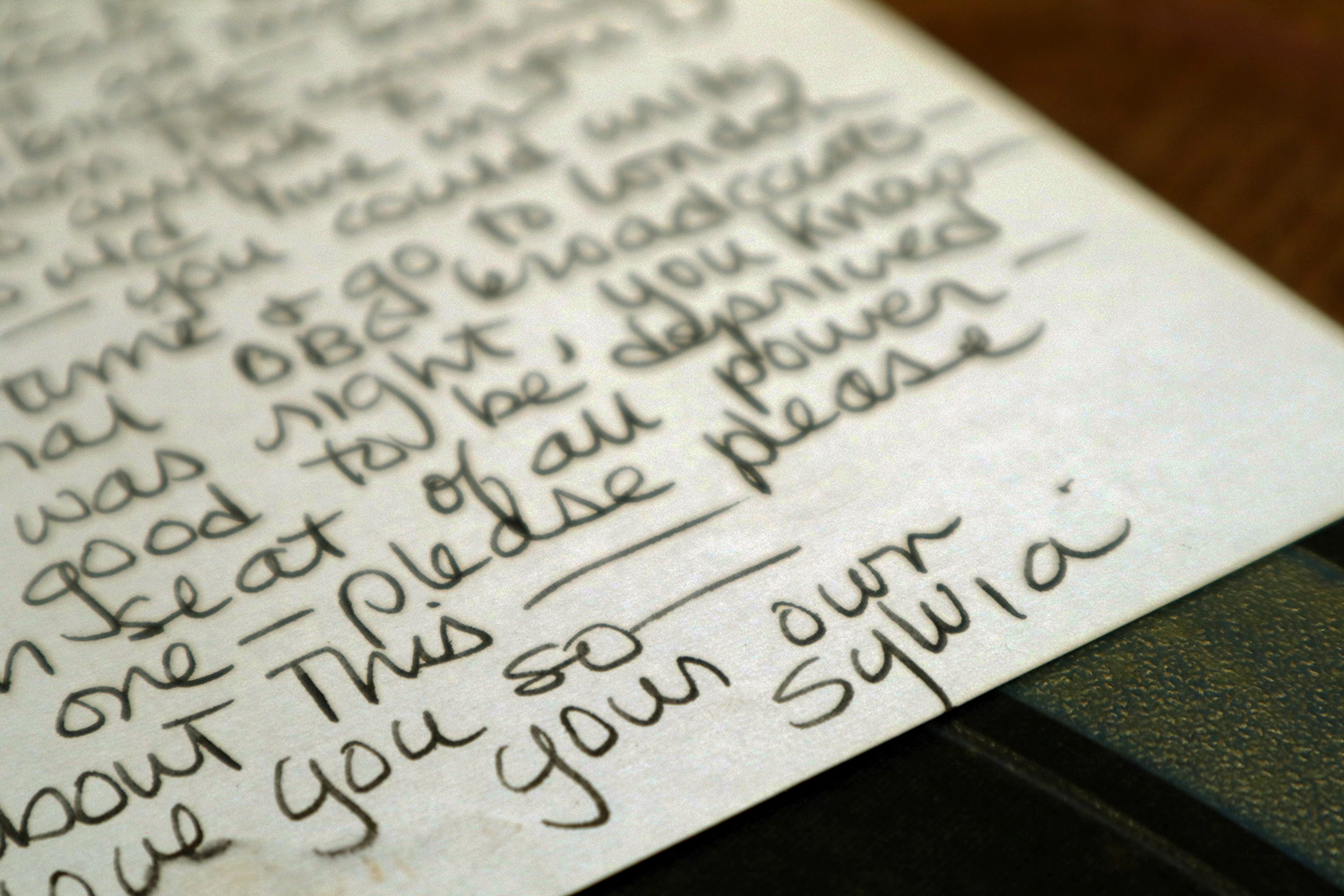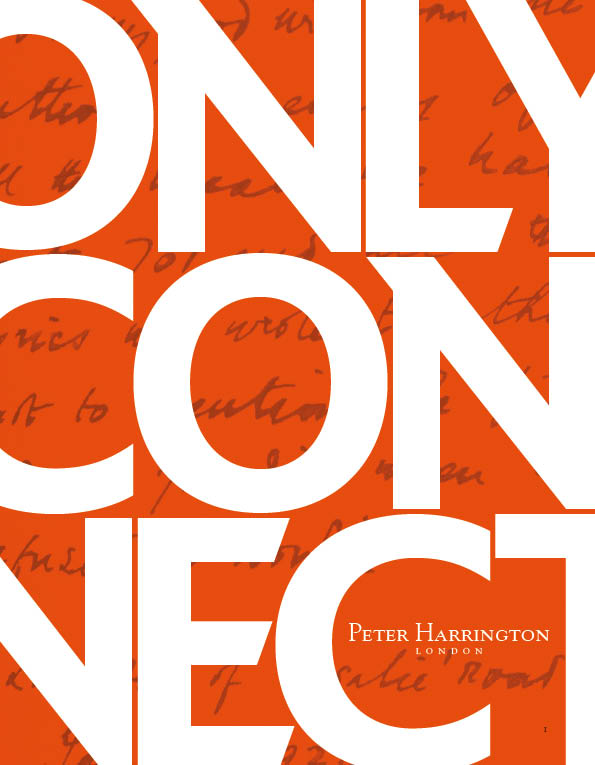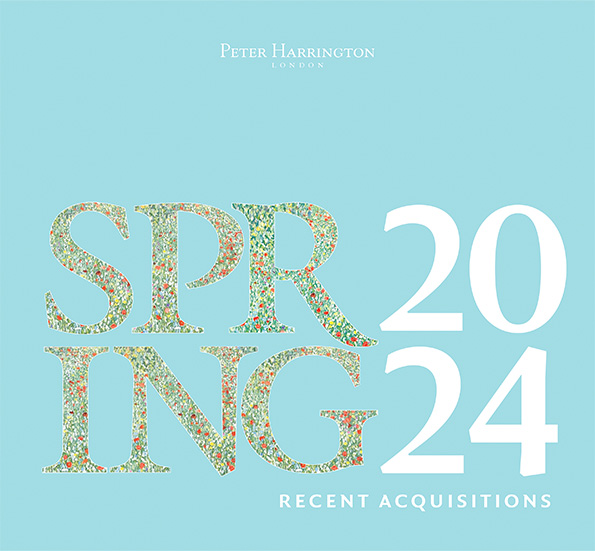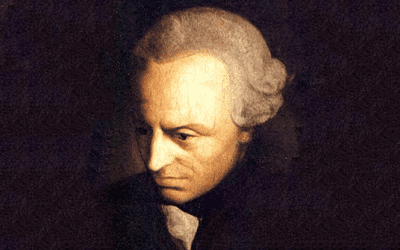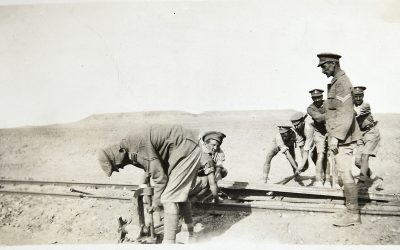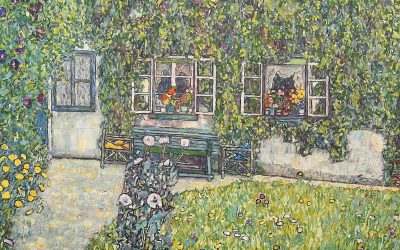Sometimes items come into our hands which plunge us, in medias res, into the life of a writer. This emotionally charged letter from Sylvia Plath to her husband Ted Hughes is such an item; the impassioned and personal words, written in her own hand, on paper of her choosing, impressing on the reader the vibrancy of the emotional life of the living, breathing woman. This letter even bears curious water marks which have in places smudged the ink. It is of course impossible to know, but is tempting to speculate that these could be the marks from the tears she intimates she is close to shedding over her predicament.
This extraordinary letter marks the end of Plath’s third week back in Cambridge in October 1956, and the culmination of unbearable separation from her husband of only a few months who was at this time staying with his parents in Yorkshire. She had been suffering from growing bouts of depression and a crisis of identity. Being apart from Ted had been affecting her work, creative and academic, as well as her mental state, which is characterised here as a “constant, deep sense of terror”. Here, she emphatically goes back on her statement in an earlier letter that she would rather be away from him when working, now asking for him to join her in Cambridge. In a state of despair at their separation, she writes “in spite of all my spasmodic calm & resolve I feel horrid & very black & wicked. it is simply a sin not to live with you. I could cry”. The first part of the letter is an exposition of her loneliness and inability to work, “the constant, deep – (so deep it is forming into vivid terrible nightmares) sense of terror, lack, superstition…”.
Learn more about this item with cataloguer Suzanna Beaupré.
Plath proposes Ted’s permanent presence in Cambridge as her ideal solution, “I can probe & root most deeply & well when planted every minute in the rich, almost unconscious feeling of your presence”. Her desperation grows as she tries to convince Ted to make the move in spite of the fact that, “you hate cambridge & wouldn’t want to come here again, I know”.
The other obstacle foreseen by Plath were the College and scholarship authorities who might object to the marriage. Living alone in Cambridge, Plath was unable to be open about her marriage, for fear that her college might expel her and her scholarship be cancelled. Moreover, if she did announce their marriage now, the gala wedding ceremony planned for America the next summer would have to be cancelled, and they would be deprived of the wedding presents they needed to begin their life together. The conflict presented by this appears to have caused significant distress, Plath writing “I am rightfully sylvia hughes & I feel sad, sick & disinherited. my first purpose is not just a wedding – it is you; I am married to you & would work & write best in living with you. I waste so much strength in simply fighting my tears for you – please understand about this & help me work it out”.
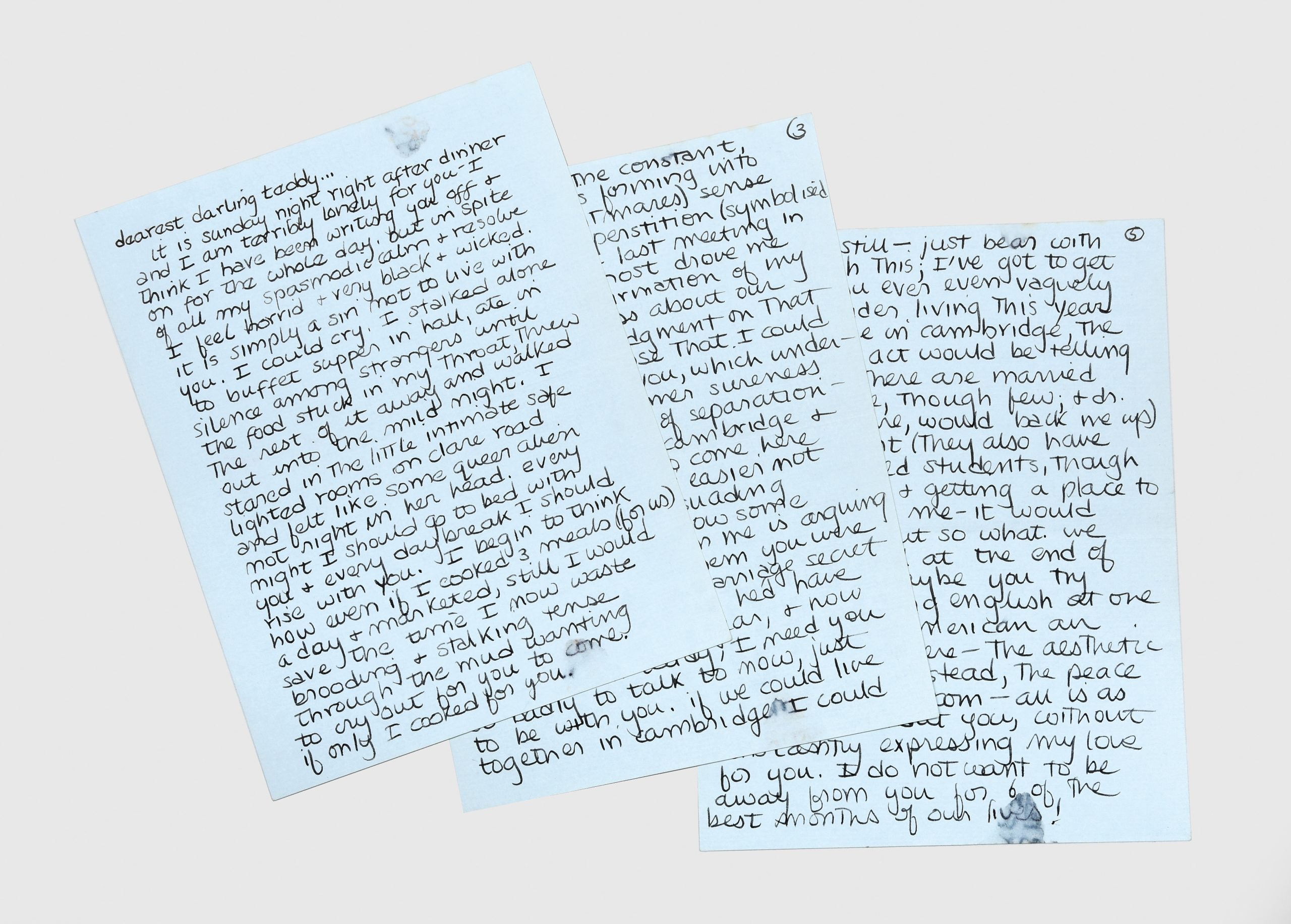
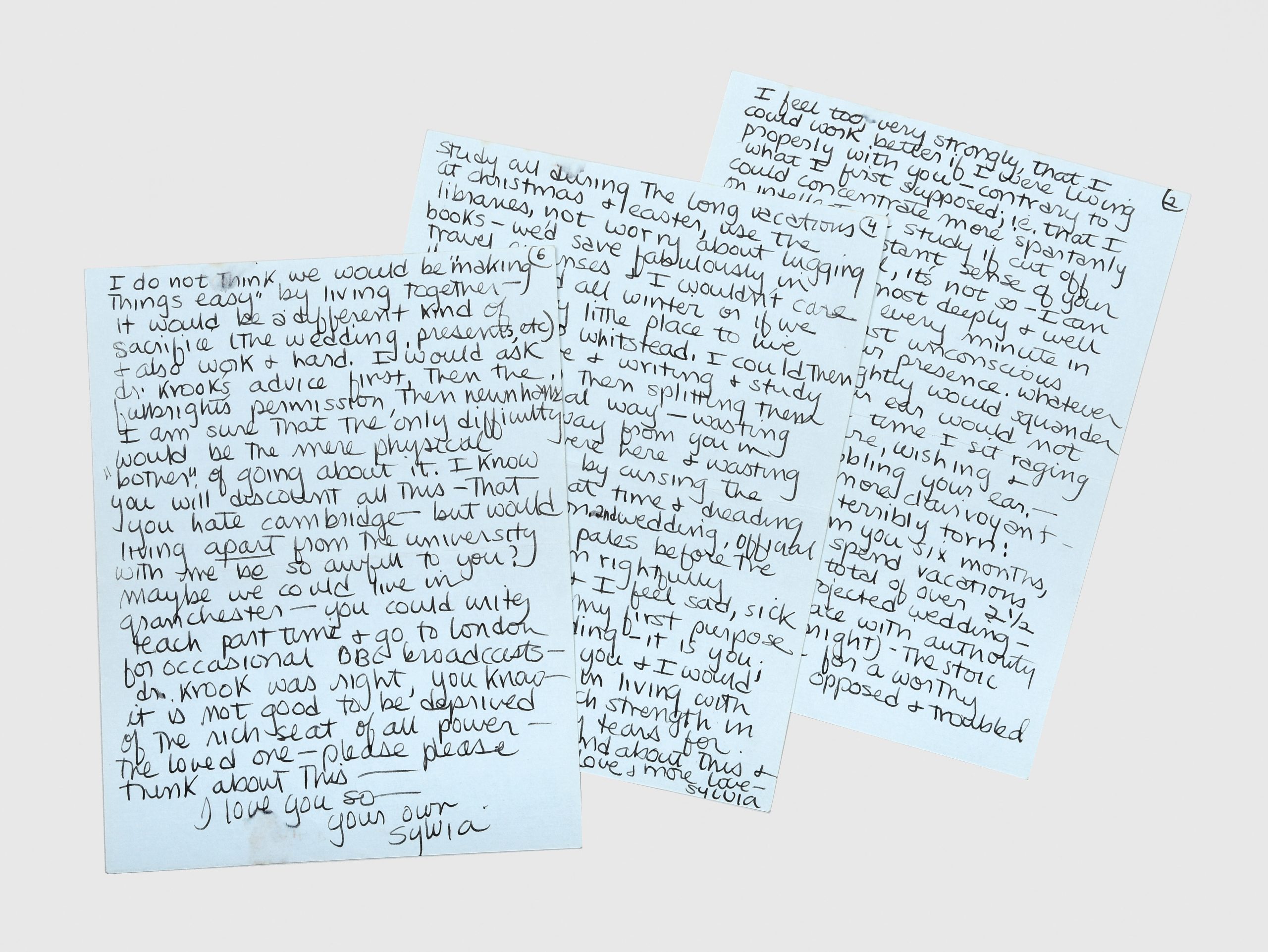
The upsides, however, would she suggests be worth the difficulties, “I could then combine love & writing & study much better then splitting them this abnormal way – wasting time when away from you in wishing you were here & wasting time with you by cursing the swiftness of that time & dreading fresh separation”.
She signs, “love & more love – sylvia”, before adding an equally emotive two-page postscript in which she turns to the practical side of the potential move, “the one difficult act would be telling Newnham (there are married students here, though few; & dr. Krook, I’m sure, would back me up) & the fulbright (they also have many married students, though mostly male) & getting a place to live & moving me”. However, she is convinced that it would work out, and be worth it: “all is as nothing without you, without constantly expressing my love for you”. She resolves that she would first seek out Dr Krook’s advice, before speaking to Newnham and Fulbright, and hopes that Ted’s hatred of Cambridge might be overcome by living in Granchester, “you could write, teach part time & go to London for occasional BBC broadcasts”. She signs, for the second time, “I love you so – your own Sylvia”.
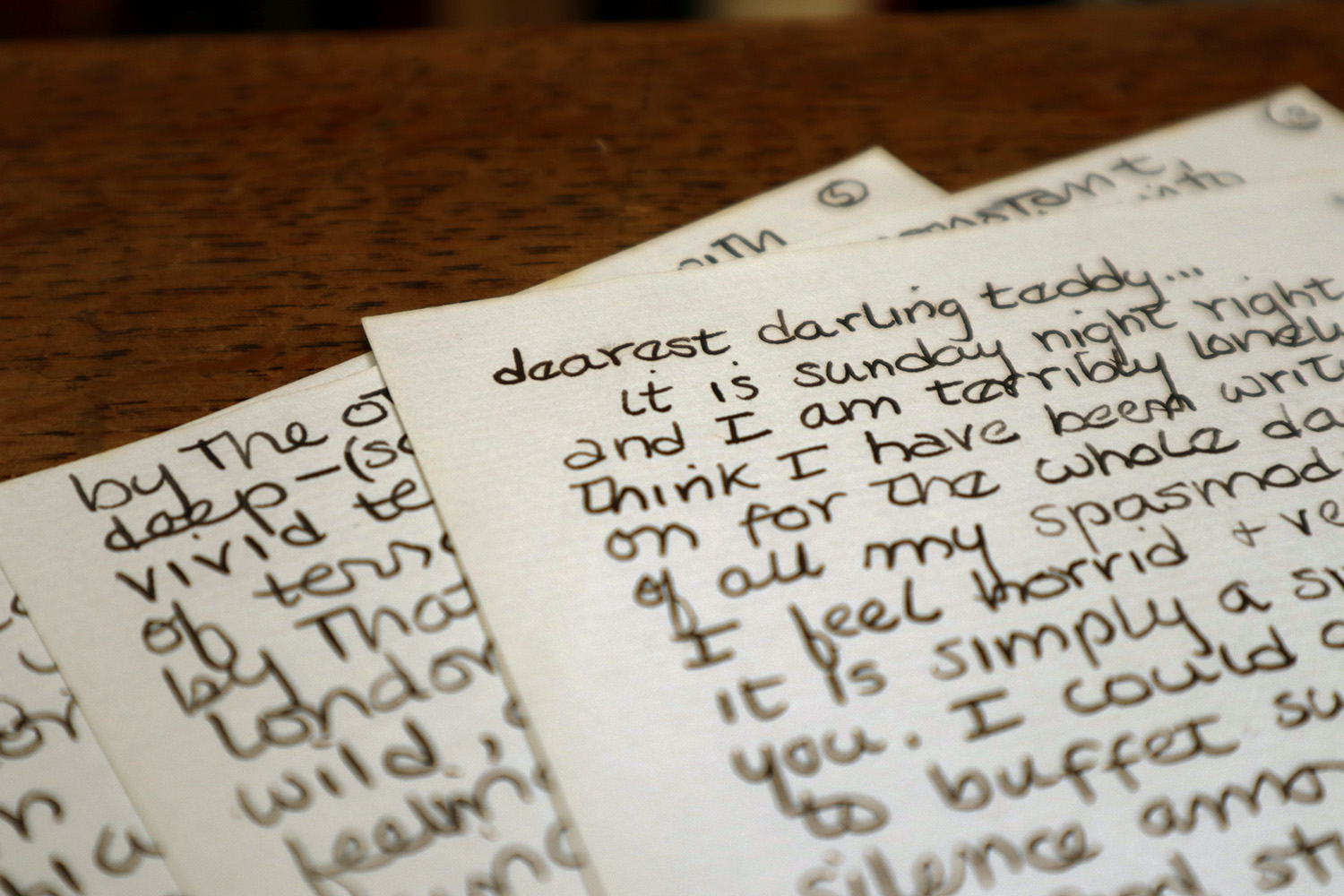
Despite her distress, this is an artefact from the early, happier days of the Plath-Hughes marriage. Ted’s own letters to Sylvia from this period are equally affectionate, filled with professions of love and frustration at their separation. Although their marriage ended in infamously tragic circumstances, culminating in Plath’s suicide in 1963, the portrait of the marriage in the letters which passed between them during this period is of a couple deeply in love, who share both an emotionally and creatively supportive bond, and on the brink of beginning their life together.
This item appears in the catalogue Only Connect, which gathers many exciting examples of literary connection, each a surviving fragment of a unique story, part of that indispensable alchemy by which we “connect the prose and the passion” as E. M. Forster once exhorted us to.

